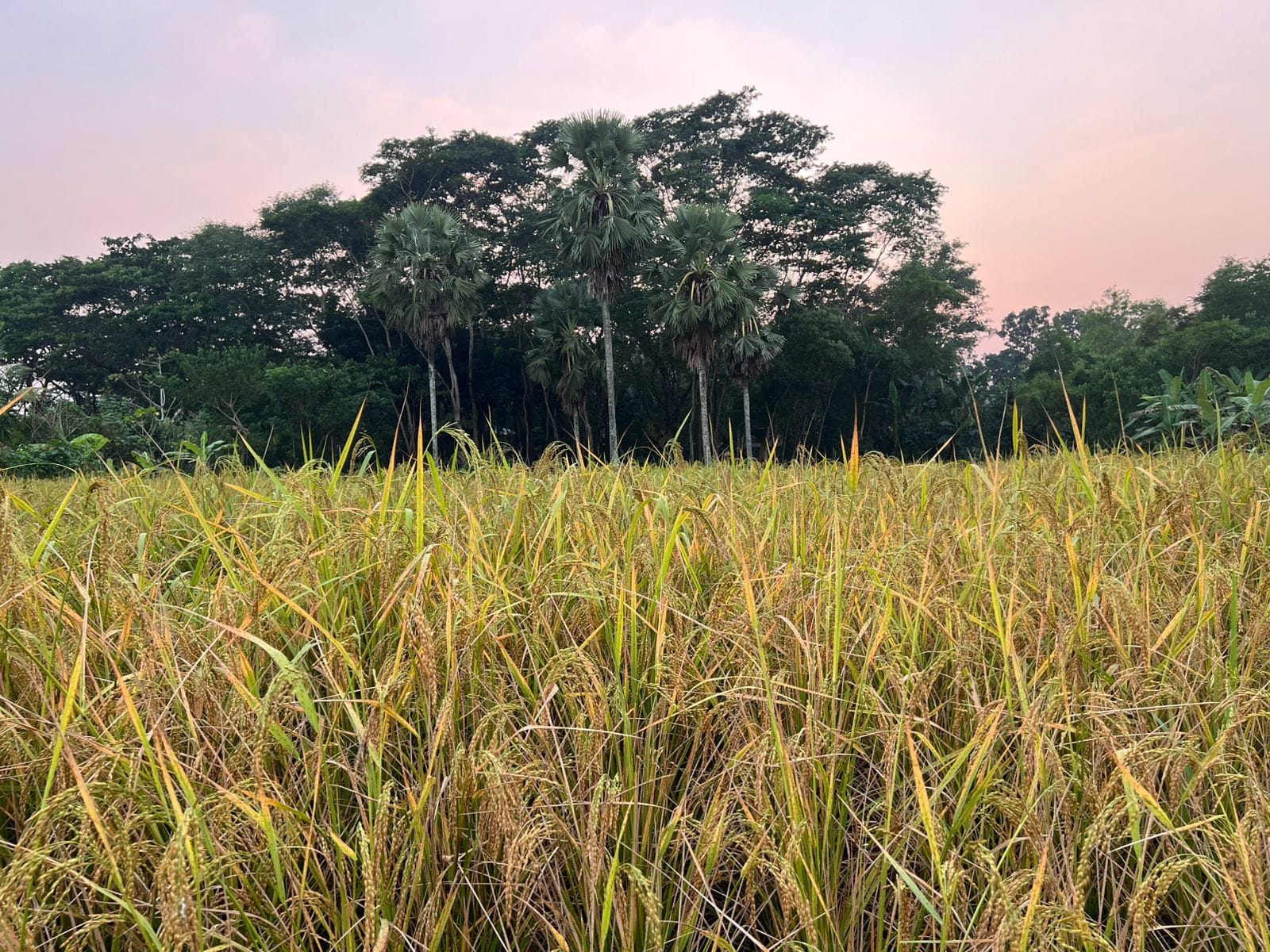News Flash
News Flash

By Enamul Haque Ena
PATUAKHALI, Nov 13, 2025 (BSS) - Farmers in several upazilas of the district are facing significant challenges due to an unusual rate of insect infestation attacking Aman rice fields.
The once-green rice fields are rapidly turning yellow and scorched in areas such as Sadar, Kalapara, Mirzaganj, Dumki, Galachipa, Dashmina, Bauphal and Rangabali.
This has sparked deep concern among farmers, who fear major losses if the pest damage continues.
A field survey revealed that leaf-wrapping insects and scorching pests are destroying the young rice plants in many regions, escalating concerns about reduced yields.
The infestation is reportedly spreading across multiple unions, including Jalisha, Baherchar, Dakshin Muradia in Dumki upazila, and several others in Baufal, Mirzaganj, and Bauphal upazilas.
Many farmers in these affected areas reported that the insects began attacking rice crops last week. Locals claim the pests are hitting highland crops hardest, with plants showing signs of severe damage.
Nurul Amin, a farmer from Jalisha village in Dumki, shared his concerns with BSS, saying that a portion of his land had been scorched in the past week. "First, the leaves turn yellow and dry out, and then the rice ears are damaged," Amin explained. "I've sprayed medicine, but there has been no improvement. If this continues, I'll lose half of my crop."
Abdul Khalek, another farmer from Dakshin Muradia, echoed the sentiment, noting that despite purchasing multiple types of pesticides, the insects continue to ravage his crops. "I’ve tried different medicines from various shops, but the problem seems to be getting worse," Khalek lamented. "We don’t know which treatment to use, and many others are facing similar problems."
Amir Hossain, a farmer from Rajakhali village, pointed out that the pest infestation is particularly severe in highland areas. "The tops of the rice plants are drying out," Hossain said. "If the pests reach the rice ears, it is not possible to revive anymore."
Farmers from Baufal’s Kanakdia area, including Abdus Sattar Mia, Malek Mia, and Faruk Mia, reported widespread infestations, with regular pesticide applications proving ineffective.
Sattar expressed frustration, saying, "Even though we're spraying regularly, the insects aren’t reducing. If this continues, harvesting will be a huge challenge."
Malek Mia also highlighted the lack of adequate support from agricultural officials. "If the authorities had provided timely advice, we could have managed the situation better," he said. "The number of affected plants is increasing every day, and we're growing more concerned."
Rafiqul Islam, a farmer from Mirzaganj, stressed the urgency of the situation, stating, "The crop is nearing ripening, and if the insects spread further, we will face significant losses. We need government intervention immediately."
In response to the growing concerns, Md. Milon, the Agriculture Officer of Bauphal Upazila, and Md. Imran Hossain, the Agriculture Officer of Dumki Upazila, told BSS that they have not received any formal complaints regarding the insect attack on Aman rice.
"The pest outbreak can be attributed to seasonal weather changes, high humidity, and temperature fluctuations," the officials explained. "However, field-level monitoring is ongoing, and we are advising farmers to apply the correct amount of approved pesticides and observe the affected crops closely."
The officials also emphasized that farmers should avoid directly touching the affected plants and should seek guidance from the Upazila Agriculture Office if needed.
Despite these reassurances, local farmers are calling for more proactive measures. They are urging the Department of Agricultural Extension to be more active at the field level, offering timely advice and support in terms of pesticides and crop management. "If immediate action isn’t taken, vast areas of Aman rice will face serious damage," farmers warned.
With the risks of further spread, Patuakhali’s rice producers remain on high alert, hoping for government assistance to prevent a major agricultural disaster.